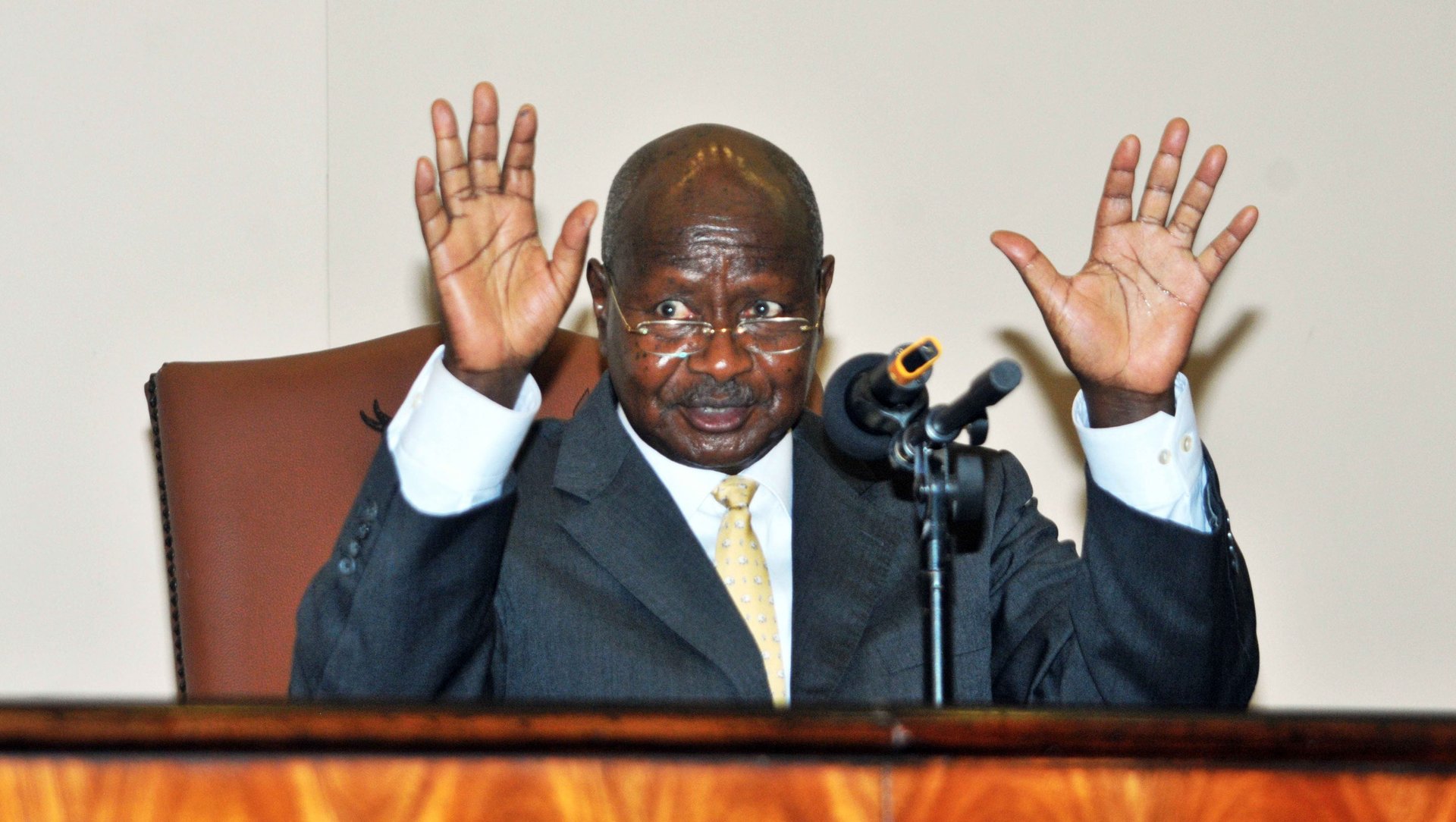Uganda’s government is obsessed with porn and policing morality
The Ugandan government’s obsession with enforcing morality and “protecting” the country’s cultural values has added a new twist: a nine-member, 2 billion shilling ($556,000) anti-pornographic control committee.


The Ugandan government’s obsession with enforcing morality and “protecting” the country’s cultural values has added a new twist: a nine-member, 2 billion shilling ($556,000) anti-pornographic control committee.
The committee, which was sworn in Kampala in late August, is expected to stamp out pornography by collecting and destroying pornographic materials, and to apprehend and prosecute perpetrators. The committee will have a staff of between 30 and 40 people who will use a high-end machine to detect the sharing of nude materials on mobile phones, computers, and television. This week the porn committee reportedly says messages of a sexual nature, or “sexting”, will also be defined as porn and attract punishment.
Uganda’s government had announced last year that it had bought an $88,000 pornography-detection machine from a company in South Korea. Simon Lokodo, Uganda’s ethics minister, said that despite delays, “now the machine is coming.” During the swearing in ceremony, the minister, who has repeatedly denounced homosexuality and pornography, said the machine will help stop “one of the deadliest moral diseases in this country.” Lokodo also claimed pornography was to blame for the increasing levels of drug abuse among the youth, teenage pregnancies, and abortion, according to the Daily Monitor newspaper. “Pornography is now eroding Uganda’s human resource,” which, he said, will “hinder the achievement of our vision.”
The crackdown on pornography is prescriptive of the Ugandan government’s increased conservatism, and its efforts to use pornography and homosexuality as a proxy for all the socio-economic problems besetting the nation. In 2014, parliament passed an anti-pornography law, which blamed pornography for the sexual crimes committed against women and children. In the same year, Uganda’s constitutional court struck down an anti-homosexuality act, which sought to not only criminalize homosexual behaviors but also compel citizens to report suspected homosexual activity to the police. In July this year, female staff at public offices were issued with a guideline banning them from wearing miniskirts, showing cleavage, or having brightly colored nails.
All these directives were faced with protests in the country, with many citizens saying president Yoweri Museveni’s administration was obsessed with morality and isn’t tackling critical issues like poverty, corruption, healthcare provision, and domestic violence. Activists also said that laws such as the ‘miniskirt ban’ were being loosely interpreted by mobs as an excuse to target and strip women thought be improperly dressed.
Uganda’s admission that it aims to monitor mobile phones and computers is also troubling given its complicated relationship with digital media. Last year, the country blocked Twitter and Facebook as voters headed to the polls in a crucial election. The government is yet to provide information on how they exactly aim to monitors people’s conversations, and if the porn-filtering machine will be used to spy on citizens.
However, all these efforts underpin Ugandan officials’ continued preoccupation with enforcing moral codes—at whatever cost. As minister Lokodo said when the pornography detection plan was first introduced: “We will attack and attack again. I have new tactics.”